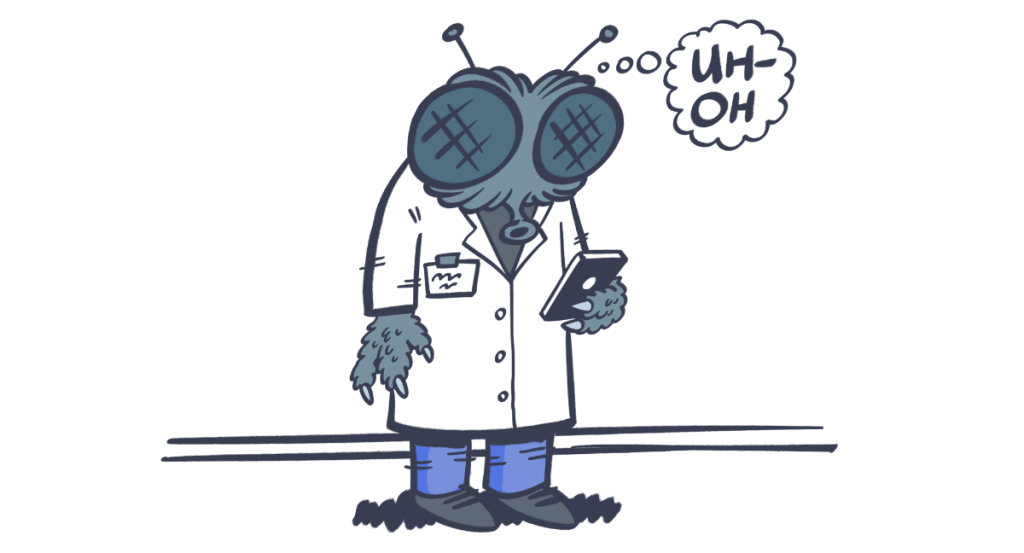The scientist-turned-villain is a topic of many films, past and present. Some are remarkable works of art and innovation. For example, the 1996 science-fiction horror film ‘The Fly’ directed by David Cronenberg, is an all-time must-see. Other films portray scientists in a better light, such as the 1997 espionage film ‘The Saint’ featuring a brilliant yet humble physicist with a solution for perpetual energy.
Today we see the scientist-turned-villain more often. The Green Goblin, Mobius, and The Lizard featured scientists working for cures in these Spider-Man movies. We witness brilliant minds transform, battle their inner demons, become bent on revenge, and go head-to-head with the web-slinger.
Indeed, the scientists we see in films today can be extreme. Likewise, a cartoonish octopus is often used to portray scientists’ and university professors’ intelligence and multi-tasking nature. Dr. Otto Octopus takes that comparison to the ultimate expression.
Where the dread begins
If you have read a scientific publication like those found on PubMed, Google Scholar or Scopus, you know the entertainment industry oversimplifies. No wonder audiences are disillusioned about what’s possible or sound.
Spidey-version or not, most scientists fear an oversimplification of their work. And while a simple spin is what journalists seek, that is where the dread begins.
There are other less obvious reasons than a simple spin as to why scientists are reluctant to talk about their research for blog and media posts.
Here we review three additional reasons scientists dread being interviewed and tips for removing the cause of that fear.
1: Turning the research finding into a click-bait title
An example of a scientific one-liner that might work today would be ‘Mitochondria is alien DNA.’ In contrast, turning the one-liner to ‘Humans are decedents of aliens’ would be inadvisable. Drawing on my experience and that of fellow scientists, being quoted or associated with click-bait titles challenges our credibility.
There is plenty of SEO and content creation advice for generating headlines to capture attention and compel a click. But unfortunately, popular formulaic methods create discontent as click-bait-sounding titles are perceived as deceptive, not only by academics, research scholars, and scientists.
Tip: Revise and reconsider your title and stay true to the cause. A genuinely interested reader will find meaningful content and headlines compelling.
A misleading title clashes with scientific integrity and credibility. Sincerity and trustworthiness are qualities scientists use to build their careers. Tagging their work with click-bait titles undermines their credibility and may be frowned upon by other scientists in the field.
2: Removing critical details for the sake of a storyline
Details can come across as dull and distract from the storyline. As writers, our content must get to the point quickly without sacrificing the story. Yet, the details outline the conditions that make the newsworthy finding accurate. Like the script for a movie, written content needs to balance accuracy and attention.
These ‘conditional’ details are found in the method sections. For example, the type of population under study, the measurement tool, or when the data was collected. The new findings are valid so long as all other conditions are met, and anything beyond is speculation.
Interpreting and reading the methods of scientific articles can be daunting – expert or not. Indeed scientific articles should heed the warning ‘May cause drowsiness.’ Typically, these publications are written for other scientists and loaded with niche-specific terminology. This is why scientists and active niche experts are often the most capable of writing accurate and trustworthy content.
Tip: Secure essential details from the authors directly to create credible content for your audience. Avoid using the journal abstract as the primary source for critical information and, if possible, take a deep dive into the scientific article.
General ideas and understandings in science appear after years of research and thousands of publications. Each study helps to advance the next by a tiny step. Thus, researchers and those capable of reading scientific literature are often aware of the science discoveries that came before to understand the impact of future findings.
At ContentAvenue, we work directly with niche experts and scientists to keep our content credible. By doing so, we can focus on writing cutting-edge and bite-size wonders for all of your audiences.
3: Being portrayed as superhuman
There are many pitfalls from levelling up to Peter Parker’s status. As with many professions, few know how to perform industry-niche tasks or are aware of how much time is needed to complete these tasks, and scientific research is no exception.
A 10-page article published in a scientific journal can take a team years to produce and write. So, when one scientific researcher is given credit or portrayed as a mad genius with superhuman qualities, the enthusiasm of the scientific team can shrink. Moreover, the expectation to uphold the reputation is exhausting, as elucidated by Nature in an article about early burnout (1).
Tip: Focus on and highlight the scientific achievement, then the team, the research organization and the funding body that backed the endeavour.
A scientist writing and publishing 30 or more articles per year is undoubtedly backed by a hard-working team. Thus, inflating or elevating the status of one scientist can create internal friction and unwanted ripple effects.
Furthermore, junior scientists become subject to and aspire for unrealistic publishing goals. Such goals can lead to imposter syndrome, causing these young minds to burn out and leave their academic and research positions prematurely.
This is not good for society in general – what then would our next set of the scientist-turned-villain movies be based on?
References
- How burnout and imposter syndrome blight scientific careers, Nature 599, 703-705 (2021). doi: https://doi.org/10.1038/d41586-021-03042-z


